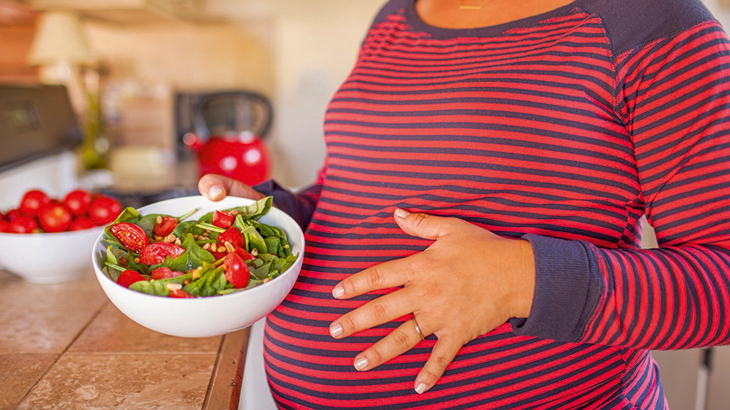Pregnancy is a life-changing journey filled with excitement, anticipation, and transformation. From the moment of conception to the delivery of your baby, your body undergoes incredible changes to support new life. Understanding what happens during each month can help expecting mothers feel more confident, prepared, and connected throughout this amazing experience.
This month-by-month guide walks you through the key physical and emotional developments of each stage of pregnancy, offering helpful tips, insights, and reminders along the way.
🤰 First Trimester (Month 1–3): Foundations of New Life
📅 Month 1: Conception & Implantation
- What’s Happening: Fertilization occurs, and the embryo implants in the uterus.
- Your Body: You may not feel pregnant yet, but hormonal changes are already beginning.
- Symptoms: Mild cramping, spotting, mood swings, fatigue.
- Tip: Start taking prenatal vitamins, especially folic acid.
📅 Month 2: Early Development
- What’s Happening: The embryo’s heart starts beating, and the neural tube (which becomes the brain and spinal cord) forms.
- Your Body: Nausea (morning sickness), breast tenderness, increased urination.
- Tip: Eat small, frequent meals to ease nausea. Stay hydrated.
📅 Month 3: Transition to Fetus
- What’s Happening: The embryo becomes a fetus. Major organs begin to form.
- Your Body: Fatigue and morning sickness may peak.
- Tip: Schedule your first prenatal appointment for an ultrasound and blood tests.
🤱 Second Trimester (Month 4–6): The Golden Period
📅 Month 4: Growth & Energy Boost
- What’s Happening: Baby develops bones, muscles, and facial features. You may feel your first fluttery movements (quickening).
- Your Body: Energy may return, and the baby bump becomes more visible.
- Tip: Start sleeping on your side for better circulation.
📅 Month 5: Bonding Begins
- What’s Happening: Baby’s heartbeat can be heard clearly. Fingerprints and hair start forming.
- Your Body: You may feel more pronounced kicks. Skin changes like the linea nigra may appear.
- Tip: Begin researching birthing classes and pediatricians.
📅 Month 6: Sensory Development
- What’s Happening: The baby starts responding to sounds and light. Eyelids open.
- Your Body: Backaches, leg cramps, and occasional swelling.
- Tip: Wear supportive footwear and consider prenatal yoga or stretching exercises.
🤱♀️ Third Trimester (Month 7–9): Countdown to Baby
📅 Month 7: Final Trimester Begins
- What’s Happening: Baby is rapidly gaining weight and fat. Brain development accelerates.
- Your Body: Shortness of breath, heartburn, difficulty sleeping.
- Tip: Create a birth plan and tour your delivery facility.
📅 Month 8: Positioning & Preparation
- What’s Happening: Baby moves into head-down position. Lungs are maturing.
- Your Body: Frequent urination, pelvic pressure, Braxton Hicks contractions.
- Tip: Pack your hospital bag and install your car seat.
📅 Month 9: Full Term & Ready
- What’s Happening: Baby’s organs are fully developed and ready for life outside.
- Your Body: You may experience the “nesting instinct,” real contractions, and cervical changes.
- Tip: Stay in close touch with your doctor about signs of labor.
👶 What to Expect During Labor
Labor can begin anytime between 37 and 42 weeks. Common signs include:
- Regular, intensifying contractions
- Water breaking
- Lower back pain
- Bloody show (mucus plug discharge)
Have your birth plan ready, but stay flexible. Every labor is unique!
🧘♀️ Tips for a Healthy Pregnancy Journey
- Eat well: Focus on whole grains, lean proteins, fruits, and vegetables.
- Stay active: Gentle exercise supports mood and circulation.
- Manage stress: Try breathing exercises, meditation, or prenatal massage.
- Attend prenatal visits: Regular checkups help monitor both baby’s and your health.
FAQs About Pregnancy Stages
Q1: When will I feel my baby move for the first time?
A: Usually between 16 and 25 weeks (Month 4–6), especially in first-time pregnancies.
Q2: What is the best time for an ultrasound?
A: Around 18–20 weeks for the anatomy scan to check baby’s growth and development.
Q3: Can I travel during pregnancy?
A: Yes, usually during the second trimester. Always consult your doctor first.
Q4: What foods should I avoid during pregnancy?
A: Raw seafood, unpasteurized dairy, deli meats, high-mercury fish, and excessive caffeine.
Q5: Is it normal to feel emotional?
A: Yes. Hormonal shifts can cause mood swings, especially in the first and third trimesters.
Q6: How much weight should I gain?
A: It varies, but typically 25–35 pounds for someone with a normal pre-pregnancy weight.
Q7: When should I start prenatal care?
A: As soon as you confirm your pregnancy—ideally within the first 8 weeks.
Q8: What are Braxton Hicks contractions?
A: Painless “practice” contractions that help the uterus prepare for labor. Common in the third trimester.
💕 Conclusion: Embrace the Journey with Knowledge and Confidence
Pregnancy is a journey like no other—filled with growth, joy, and preparation for one of life’s greatest blessings. By understanding the month-by-month changes in your body and your baby’s development, you can feel more connected and empowered every step of the way.
Stay informed, trust your instincts, and embrace each moment of this beautiful transformation.









